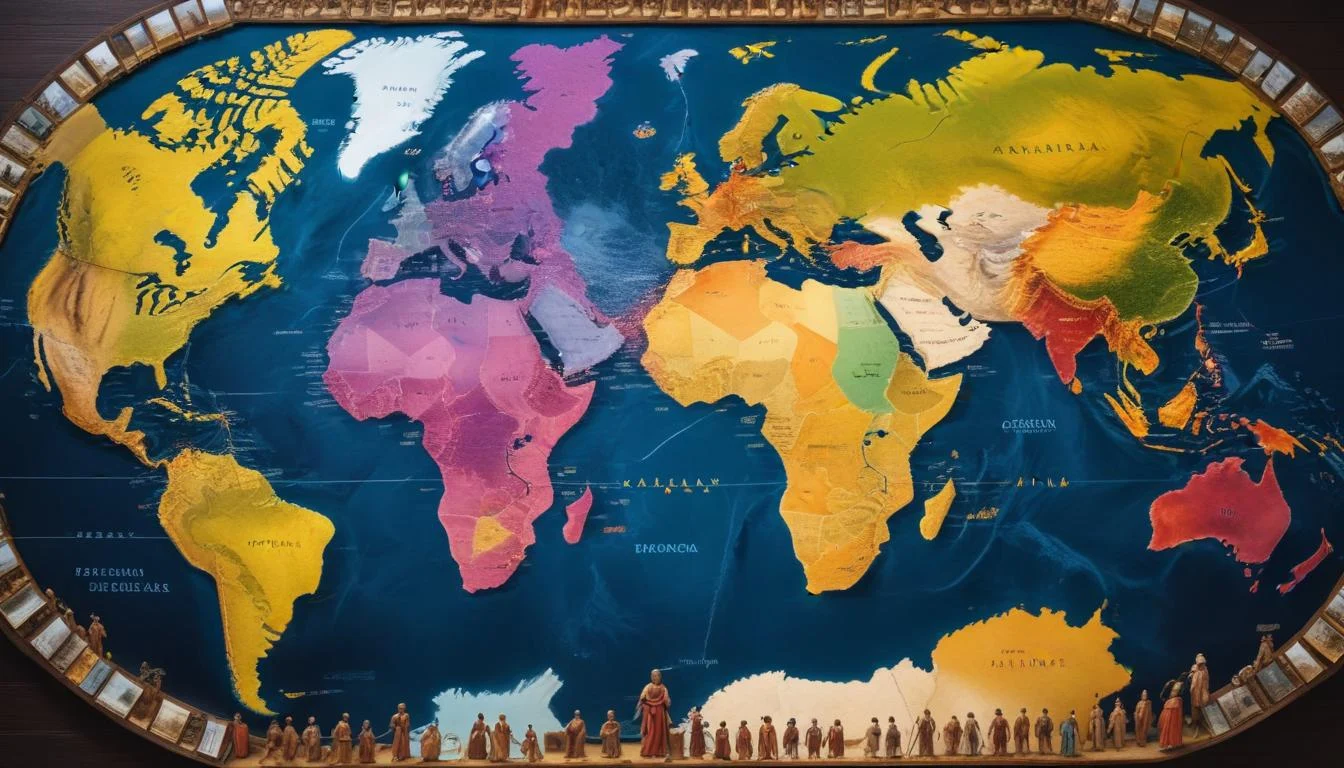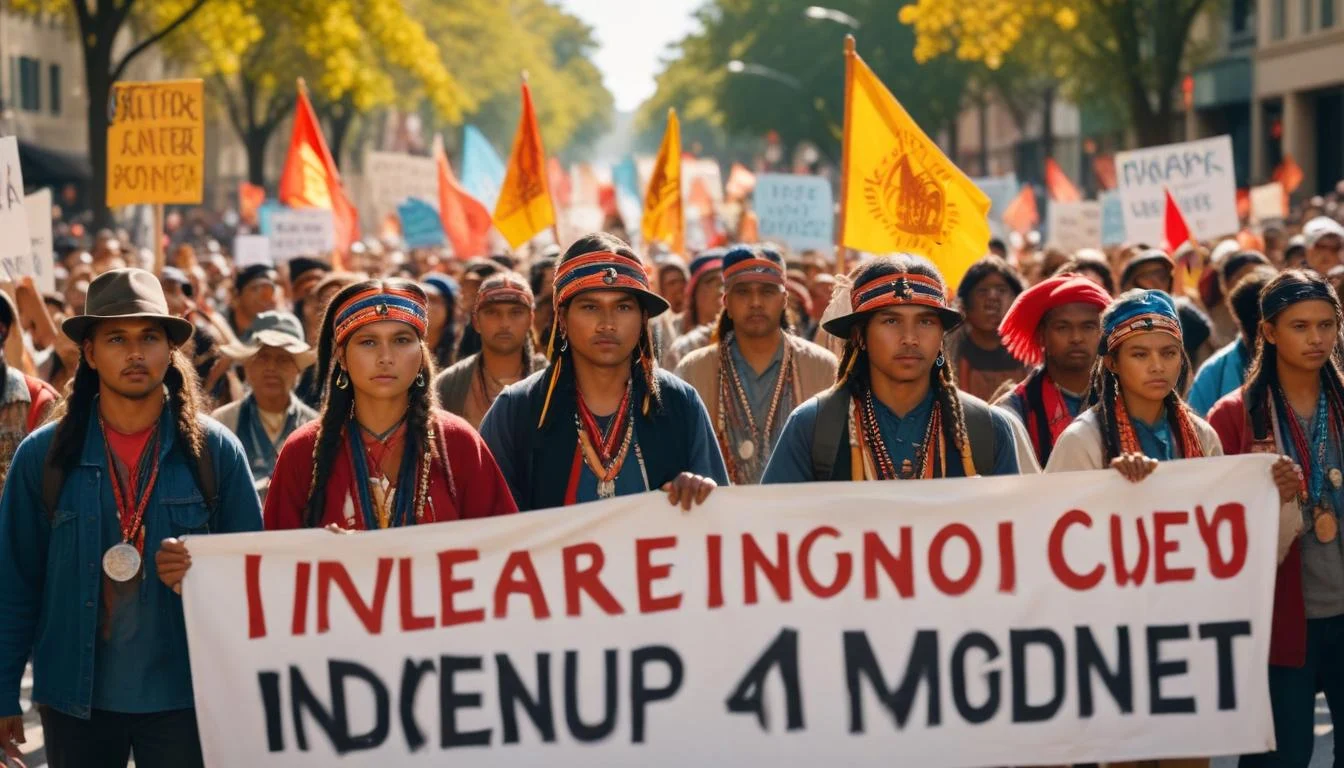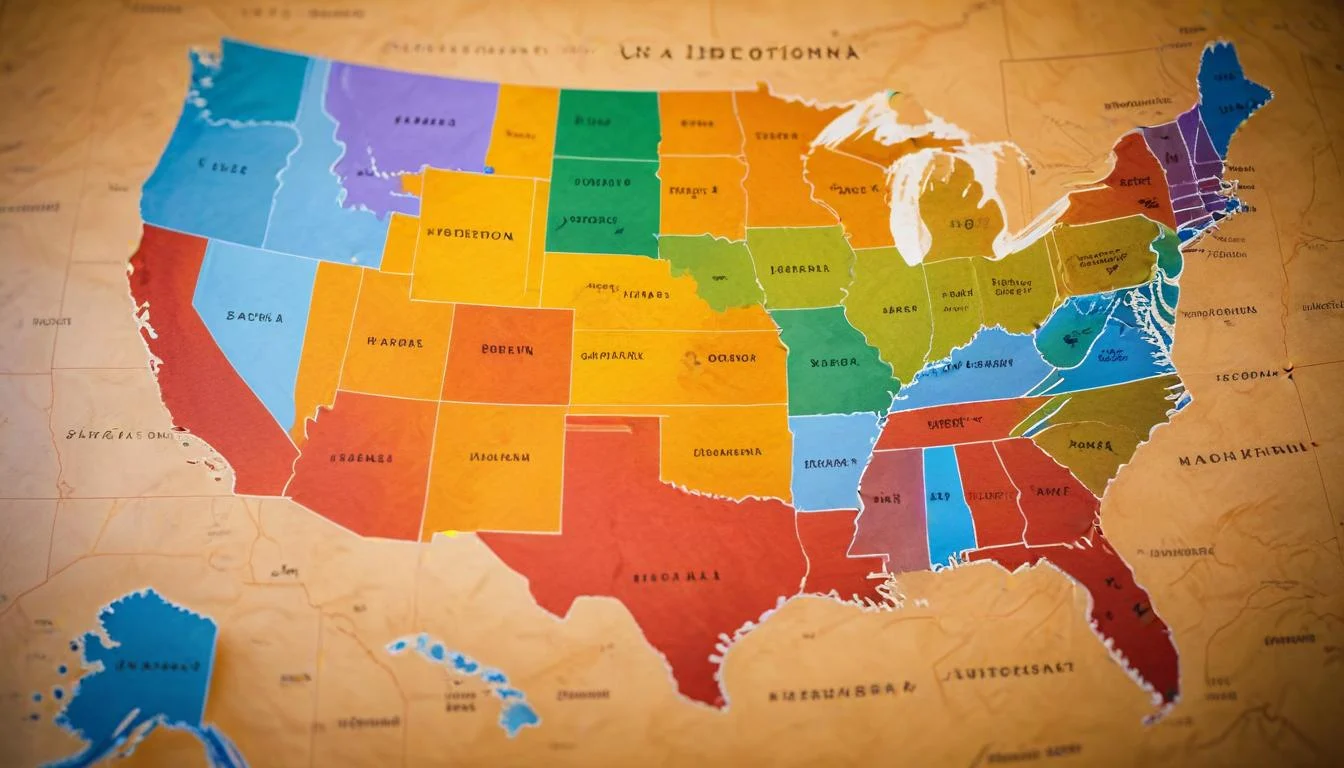 🔔 Affiliate Disclosure
This content may contain affiliate links. If you click on a link and make a purchase, we may receive a small commission — at no extra cost to you. Thank you for supporting BeatInsights! 💛
🔔 Affiliate Disclosure
This content may contain affiliate links. If you click on a link and make a purchase, we may receive a small commission — at no extra cost to you. Thank you for supporting BeatInsights! 💛
Amidst vibrant parades and festive gatherings, a different scene unfolded. Protesters marched, holding signs bearing solemn messages. They highlighted the painful history often overshadowed by Columbus Day celebrations. The day, meant to honor Christopher Columbus, faces growing questions. It sparks debate about its true legacy. Columbus’ voyages marked a turning point in world history. This article will explore the history, controversy, and legacy of Columbus Day. While historically celebrated, Columbus Day faces increasing scrutiny due to its impact on Indigenous peoples and the narratives it perpetuates. This analysis includes Columbus Day controversy Indigenous perspective. Also, it looks at Indigenous Peoples Day history and celebrations, the Columbian Exchange positive and negative impacts, and efforts focused on Replacing Columbus Day with Indigenous Peoples Day.
Columbus’ Voyages and the “Discovery”
Christopher Columbus was born in Genoa, Italy. He sought a westward sea route to the East Indies. The Spanish monarchs, Ferdinand and Isabella, sponsored his voyage. They hoped to expand trade and spread Christianity. Columbus set sail in 1492. His ships were the Niña, the Pinta, and the Santa Maria. He landed in the Bahamas, believing he had reached Asia. He named the island San Salvador. He then explored other Caribbean islands, including Cuba and Hispaniola.
Columbus was not the first to reach the Americas. Indigenous peoples had lived there for thousands of years. Vikings, led by Leif Erikson, also reached North America centuries earlier. Navigation was difficult. Sailors relied on stars, compasses, and rudimentary instruments. Columbus’ voyages opened the way for European exploration and colonization. His journeys had a profound and lasting impact on the world.
The Columbian Exchange: Benefits and Consequences
The Columbian Exchange refers to the transfer of plants, animals, culture, people, and diseases. It happened between the Americas, West Africa, and the Old World. This exchange began in the 15th and 16th centuries.
New foods transformed diets globally. Potatoes and tomatoes from the Americas became staples in Europe. Wheat, rice, and livestock were introduced to the Americas. Horses changed transportation and warfare.
However, the exchange had devastating consequences. Diseases like smallpox and measles decimated Indigenous populations. The diseases to which the Native Americans had never been exposed, caused widespread death. Enslavement and exploitation followed. Native lands were seized. The Columbian Exchange brought both progress and destruction. It showcases a complex interaction between different parts of the globe. It reveals a dark period of colonialism and suffering for Indigenous people. This is a key point in any Columbus Day controversy Indigenous perspective discussion.

Understanding the Two Sides of the Exchange
The Columbian Exchange brought advancements. It also brought unprecedented harm. A balanced view acknowledges both the benefits and the tragic costs. This helps to understand the full impact of Columbus’s voyages. The Columbian Exchange positive and negative impacts are still felt today.
Columbus Day: From Heritage Celebration to National Holiday
Italian-Americans began celebrating Columbus in the late 18th century. They saw him as a symbol of their heritage and achievement. These early celebrations were local. They gained momentum in the 19th century. Italian immigrants faced discrimination in the United States. Celebrating Columbus Day helped them gain recognition.
The Knights of Columbus played a vital role. This Catholic fraternal organization promoted Columbus’s image. They helped to establish Columbus Day as a federal holiday. President Franklin D. Roosevelt officially proclaimed Columbus Day in 1937. It was a way to honor Italian-American heritage and celebrate exploration. The holiday, however, does not reflect the views of all.
Columbus Day was established to celebrate Columbus’ achievement. This achievement, however, came at a great cost to the Native peoples of America. This is a central point to consider when looking at the Columbus Day controversy Indigenous perspective.
Examining the Controversy: Indigenous Perspectives
The Indigenous experience was marked by violence and loss. European colonization led to massacres and displacement. Native Americans were forced off their ancestral lands. They were subjected to forced assimilation. Their cultures were suppressed. Boarding schools separated children from their families. These actions aimed to erase Indigenous identities.
The “discovery” narrative ignores the pre-existing civilizations in the Americas. These civilizations had complex societies and rich histories. The Aztec, Inca, and Maya empires were advanced. They were thriving before European contact.
Columbus is accused of being a colonizer and enslaver. He initiated the transatlantic slave trade. He exploited Indigenous labor. Some argue that historical figures should be judged by modern values. Others believe they should be understood in their historical context. This is a debate about interpreting the past.
These points fuel the ongoing Columbus Day controversy Indigenous perspective. It emphasizes the need to acknowledge the harm caused by colonization. It encourages a more complete understanding of history.
Indigenous Peoples’ Day: A New Perspective
Indigenous Peoples’ Day began as a counter-celebration. It offered a different narrative. It aims to honor the history and culture of Indigenous peoples. Activists in the 1970s first proposed replacing Columbus Day. South Dakota was the first state to officially celebrate Indigenous Peoples’ Day in 1990.
The goal of Indigenous Peoples’ Day is to recognize the contributions and resilience of Native Americans. It challenges the dominant narrative that glorifies colonization. It promotes education and awareness about Indigenous issues. Many cities and states now observe Indigenous Peoples’ Day. This reflects a growing recognition of Indigenous rights. The movement to Replace Columbus Day with Indigenous Peoples Day is growing.
It signifies a shift toward a more inclusive and accurate understanding of history. Indigenous Peoples Day history and celebrations are becoming more widespread. This holiday is a way to honor the past and build a more just future. It allows for reflection on the impact of colonization. It promotes respect for Indigenous cultures.

Conclusion
Columbus Day remains a source of contention. It represents different things to different people. For some, it is a celebration of heritage and exploration. For others, it is a reminder of colonization and injustice. The rise of Indigenous Peoples’ Day marks a significant shift. It acknowledges the need to recognize and honor Indigenous history. A comprehensive understanding of Columbus Day, Indigenous Peoples Day history and celebrations, the Columbian Exchange positive and negative impacts, Columbus Day controversy Indigenous perspective, and Replacing Columbus Day with Indigenous Peoples Day is vital for fostering dialogue and promoting healing.
The growing movement to replace Columbus Day with Indigenous Peoples Day reflects changing views. These views focus on Indigenous Peoples Day history and celebrations and the Columbian Exchange positive and negative impacts. This shift acknowledges the Columbus Day controversy Indigenous perspective. Many now favor Replacing Columbus Day with Indigenous Peoples Day. This change respects Indigenous cultures. It also challenges traditional narratives.
Honoring Indigenous Cultures
Many state and local governments have adopted Indigenous Peoples Day. For instance, South Dakota celebrates Native American Day. Maine also recognizes Indigenous Peoples Day. These changes show a growing respect for Indigenous people.
– Arguments support honoring Indigenous cultures and histories.
– Indigenous cultures hold deep historical importance.
– Recognizing Indigenous contributions corrects past oversights.
Celebrating diversity is crucial. It enriches society. It also promotes understanding. Honoring Indigenous cultures fosters inclusivity. It acknowledges their vital role in history. Diversity makes communities stronger. It promotes empathy and respect.
Arguments for Recognizing Indigenous Peoples
Honoring Indigenous cultures means recognizing their past injustices. It also acknowledges their present struggles. Many believe Columbus Day celebrates colonialism. This celebration ignores the harm done to Indigenous people. Therefore, Indigenous Peoples Day history and celebrations offer a more balanced view.
Arguments in favor include:
– Acknowledging historical trauma.
– Celebrating resilience and survival.
– Promoting cultural understanding.
– Correcting historical narratives.
– Giving voice to marginalized communities.
Celebrating Indigenous cultures means supporting their languages. It also supports their traditions. This helps preserve their heritage for future generations. Additionally, recognition can help heal past wounds.
State and Local Governments Taking Action
Several states now recognize Indigenous Peoples Day. California and Vermont are among them. Many cities have also made the switch. These include:
– Denver Colorado.
– Phoenix Arizona.
– Seattle Washington.

These decisions reflect a growing awareness. They also reflect a commitment to honoring Indigenous people. These changes often follow advocacy. Activists and community groups push for recognition. Their efforts raise awareness and promote change. Many organizations advocate for Indigenous rights. These groups help shape public opinion.
Columbus Day: A Shifting Perspective
The traditional Columbus Day holiday focuses on Christopher Columbus. Yet, his arrival marked the start of European colonization. This colonization brought immense suffering to Indigenous populations. Disease, displacement, and violence changed their lives forever. Because of this many question the celebratory nature of Columbus Day.
Replacing Columbus Day with Indigenous Peoples Day symbolizes change. It represents a shift toward inclusivity. It also reflects a desire for a more accurate historical account. It offers a chance to learn about Indigenous history. People can also learn about their cultures and contributions. This recognition helps to build bridges between communities.
Reconciling History and Remembrance
A more nuanced and inclusive understanding of history is vital. It requires exploring different perspectives. It also involves acknowledging multiple narratives. Education and critical thinking are key to this process.
Finding ways to honor both Italian-American heritage and Indigenous peoples is important. This can be done through inclusive events. These events can celebrate both cultures. Education institutions play a key role in promoting reconciliation.
Columbus Day controversy Indigenous perspective remains a contentious issue. Acknowledging diverse viewpoints is essential. It helps bridge divides. It fosters understanding. This understanding paves the path for harmony.
Alternatives to Columbus Day Celebrations
Community events can focus on Indigenous cultures. These events showcase traditions. They also share histories. Educational programs can teach about Native American history. These programs should promote understanding.
Supporting Indigenous-owned businesses is important. This helps strengthen their communities. It also supports their economic well-being. Promoting dialogue between different groups is crucial. It fosters empathy and respect. One can also do acts of service in the local community.
Alternatives to Columbus Day can be found at the National Museum of the American Indian National Museum of the American Indian. They offer resources and events for learning.
The Future of Columbus Day
Ongoing debates surround Columbus Day’s name and purpose. The potential exists for future changes in how the day is observed. Continuing the conversation about history is important. Justice and reconciliation should also be discussed.
Other countries commemorate related historical events differently. For instance, some countries focus on celebrating cultural exchange. They also focus on honoring indigenous populations.
Ultimately, the future of Columbus Day depends on dialogue. It also hinges on a willingness to acknowledge past wrongs. This recognition helps create a more equitable future.
Conclusion
The complexities and controversies around Columbus Day are significant. There are strong arguments for and against celebrating the holiday. Ongoing dialogue and education are essential.
Learn more about Indigenous history. Engage in respectful dialogue about the past. Remembering the past can contribute to a more just future.




